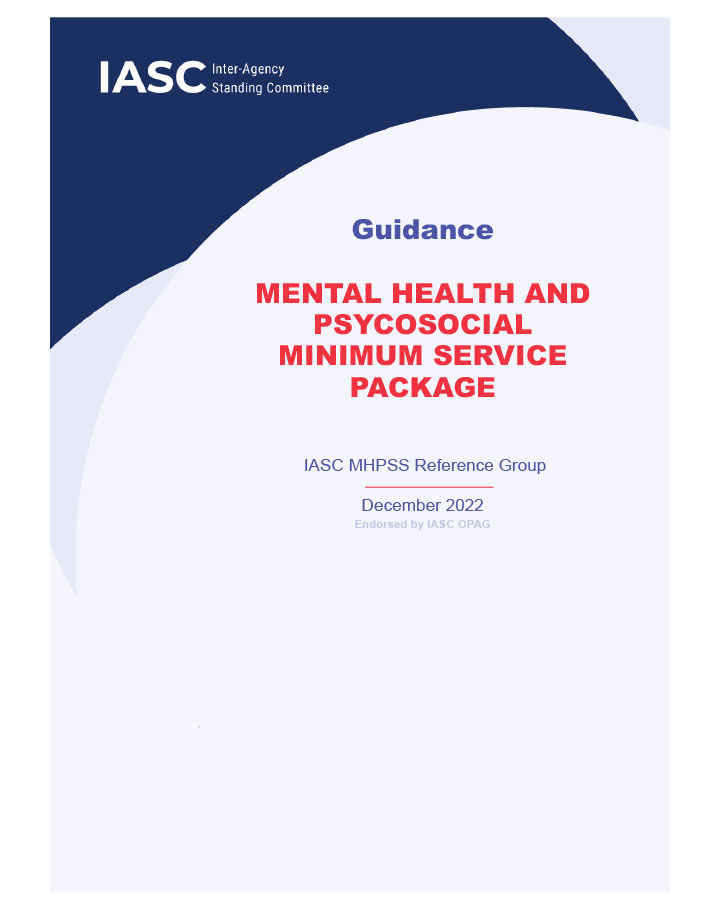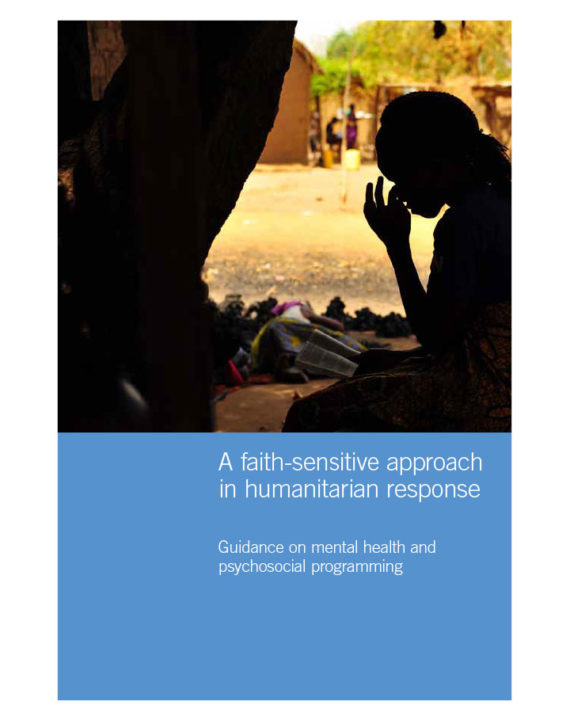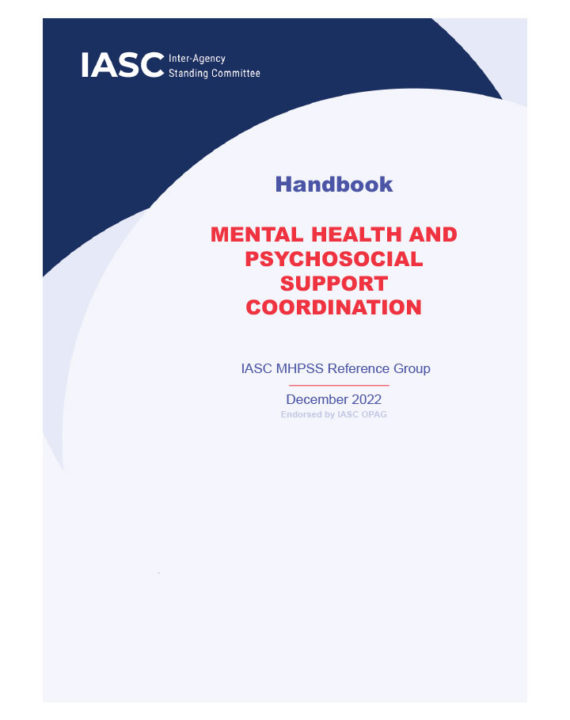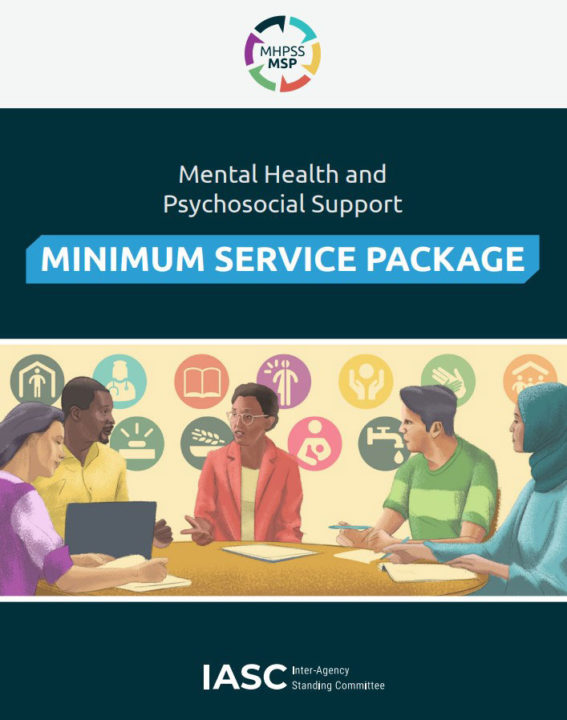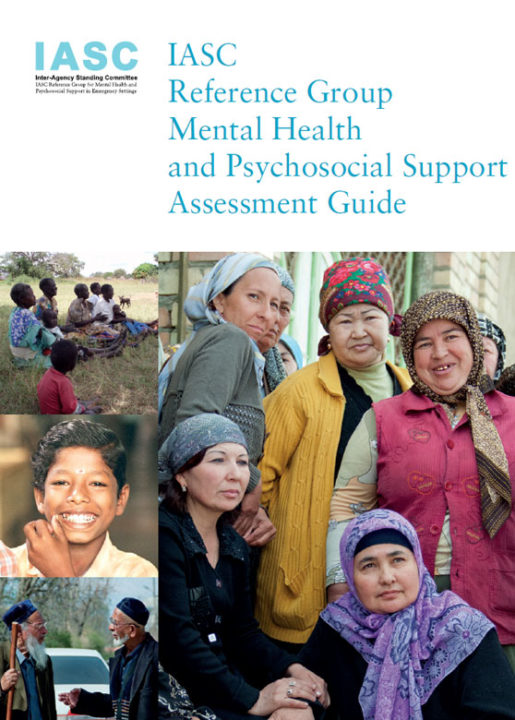This guidance note aims to support programme implementers, coordinators, and other humanitarian actors in addressing suicide and self-harm in humanitarian settings. It brings together a wide range of approaches, tools, reference materials, and case examples. It is a practical and concise resource that is applicable across all types of emergencies, organizations, and sectors.
The document covers three main sections: (i) inter-agency coordination and assessment; (ii) the essential components of all programmes; and (iii) key effective suicide prevention and intervention programme activities, from which the reader can select based on priorities and needs. The colorfully illustrated note is designed to effectively help humanitarian actors apply the technical content to real-life situations. It also showcases examples of numerous multi-sectoral suicide prevention initiatives across emergencies, ranging from radio broadcast campaigns by international organizations to data collection approaches implemented by national authorities.
The resource was developed by the Inter-Agency Standing Committee Reference Group on Mental Health and Psychosocial Support (IASC MHPSS RG). It is the result of a close collaboration between MHPSS professionals from country, regional and global levels working at UN agencies, (I)NGOs, and academic institutions. The guidance note builds on existing documents and was reviewed by humanitarian actors from different thematic areas.


